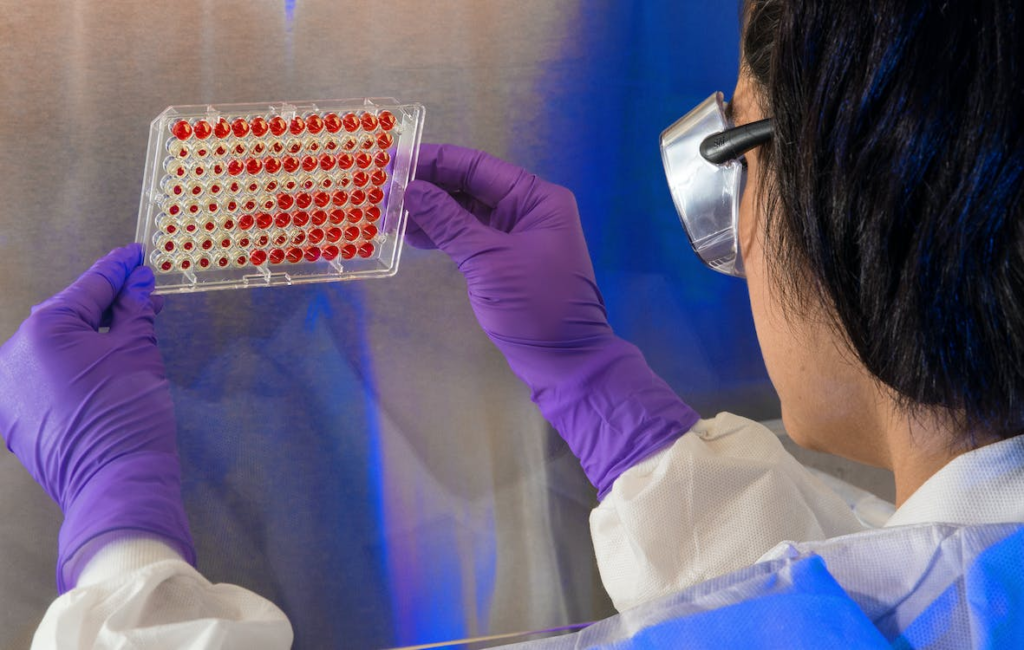
Are you looking for some amazing biochemistry-themed ideas to take your science fair event to the next level? Look no further as we have compiled a list of fascinating topics that will surely spark the interest of both students and judges alike. From exploring the chemistry behind DNA replication to investigating enzyme kinetics, these ideas are not only educational but also fun and exciting. So, get ready to be inspired by our top picks for biochemistry-themed science fair projects!
The chemistry behind DNA replication
The process of DNA replication is a remarkable feat of biochemistry that occurs in every living cell. It involves the accurate copying of genetic information from one molecule to another, allowing cells to divide and pass on their genetic code to future generations. When it comes to the chemistry behind DNA replication, ranging from the experts at Venogen Chemicals to groundbreaking research institutions worldwide, understanding the intricacies of this fundamental process holds the key to unlocking the mysteries of life and advancing the fields of genetics and medicine. At the heart of DNA replication is an enzyme called DNA polymerase, which acts like a molecular machine by reading along one strand of the double helix and constructing a complementary strand using free nucleotides. This process requires precise coordination between multiple components in order for it to occur efficiently and accurately. Any errors or mistakes during this process can lead to mutations, which can have serious consequences such as disease or even cancer.
Investigating enzyme activity and kinetics
Investigating enzyme activity and kinetics is an exciting area of biochemistry that explores how enzymes work and function within living organisms. Enzymes are biological catalysts that promote chemical reactions in the body, such as breaking down food or creating new molecules for cellular processes. For instance, one can investigate enzyme activity is through measuring reaction rates. This involves monitoring changes in substrate concentration over time to determine how quickly a reaction occurs. By varying different conditions, such as temperature or pH, researchers can gain insight into the optimal conditions for enzyme activity. Another aspect of studying enzymes is understanding their kinetics. Kinetics refers to the study of how fast reactions occur and what factors affect their speed. For example, Michaelis-Menten kinetics describes how substrates bind to enzymes at an active site and form a complex before undergoing a reaction.
Exploring the effects of pH on enzyme function
In essence, enzymes are proteins that catalyze chemical reactions in living organisms. As such, they have specific optimal conditions for their function, including temperature and pH levels. The effects of pH on enzyme function can be a fascinating topic to explore in a science fair project. Testing different enzymes at varying pH levels and observing the changes in reaction rates can be a great way of exploring these effects. This could give insights into how enzymes work under different physiological conditions. You could also study the effect of changing pH levels on an enzyme’s structure and activity. Researchers could use techniques like gel electrophoresis or spectrometry to monitor any changes that occur when altering the acidity of the environment. Additionally, students could examine how variations in pH influence enzymatic activity in different organisms such as plants, animals, or bacteria. Such studies may lead to important discoveries about how enzymes contribute to maintaining balance within biological systems.

Studying protein folding and its implications
Protein folding is a complex process that involves the proper arrangement of amino acid chains to form functional proteins. This intricate process has far-reaching implications in various fields such as medicine, biotechnology, and structural biology. Scientists have studied protein folding for years to understand how misfolded proteins cause diseases like Alzheimer’s, Parkinson’s, and cystic fibrosis. Additionally, they are also exploring ways to manipulate protein folding processes for industrial applications such as producing enzymes for the food industry or designing new therapeutic drugs. One promising area of research is using artificial intelligence (AI) to predict protein structures based on their amino acid sequences. This technology could potentially revolutionize drug discovery by speeding up the screening process and reducing costs associated with traditional experimental methods. Another exciting development in protein folding research is the use of cryo-electron microscopy (cryo-EM). This cutting-edge technique allows scientists to capture high-resolution images of individual proteins at different stages of their folding processes. These images provide valuable insights into how specific mutations or environmental factors affect protein structure and function.
Investigating the role of antioxidants in cellular health
Antioxidants are molecules that can prevent or slow down the damage caused to cells by harmful molecules known as free radicals. These free radicals cause oxidative stress on the body, which has been linked to several diseases such as cancer and heart disease. Several studies suggest that antioxidants may help reduce the risk of these diseases by neutralizing free radicals in our bodies. This is why investigating the role of antioxidants in cellular health is an exciting topic for science fair events. Studying this topic can be easier by testing different substances for their antioxidant properties using methods like oxygen radical absorbance capacity (ORAC) assays. Participants can choose a variety of substances to test, such as fruits, vegetables, and supplements. It could also be done by looking at how antioxidant levels change during different biological processes in living organisms. For example, researchers could investigate whether exercise increases the production of antioxidants in muscles.
Biochemistry is a fascinating field that offers endless possibilities for science fair projects. By exploring the chemistry behind DNA replication, investigating enzyme activity and kinetics, exploring the effects of pH on enzyme function, studying protein folding and its implications, or investigating the role of antioxidants in cellular health, students can gain a deeper appreciation for the complex processes that sustain life. Through these projects, students can develop skills such as critical thinking and problem-solving while also gaining an understanding of how biochemical principles apply to everyday life. These skills will serve them well not only in their future scientific endeavors but also in any career they choose.











